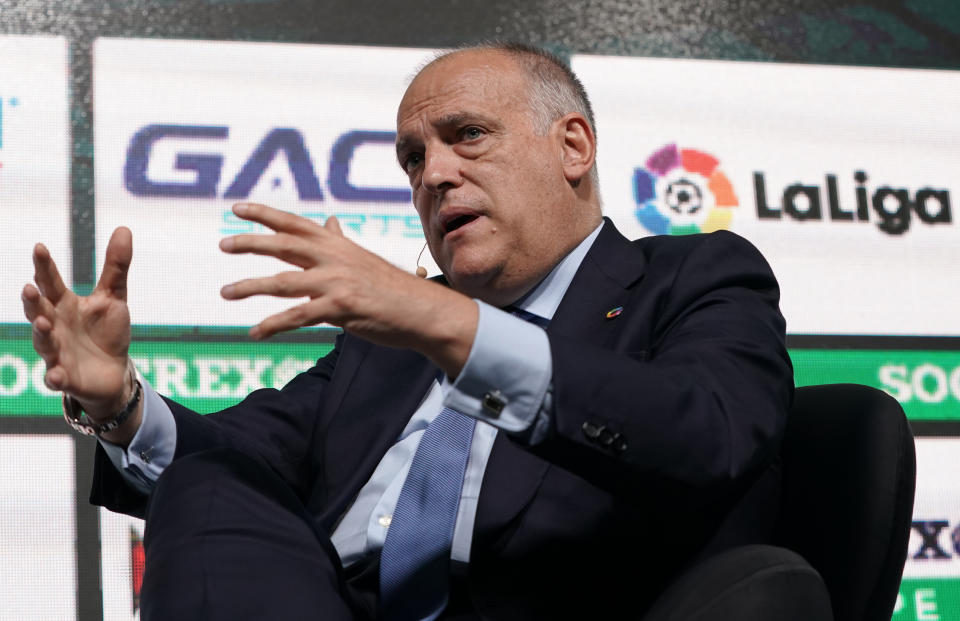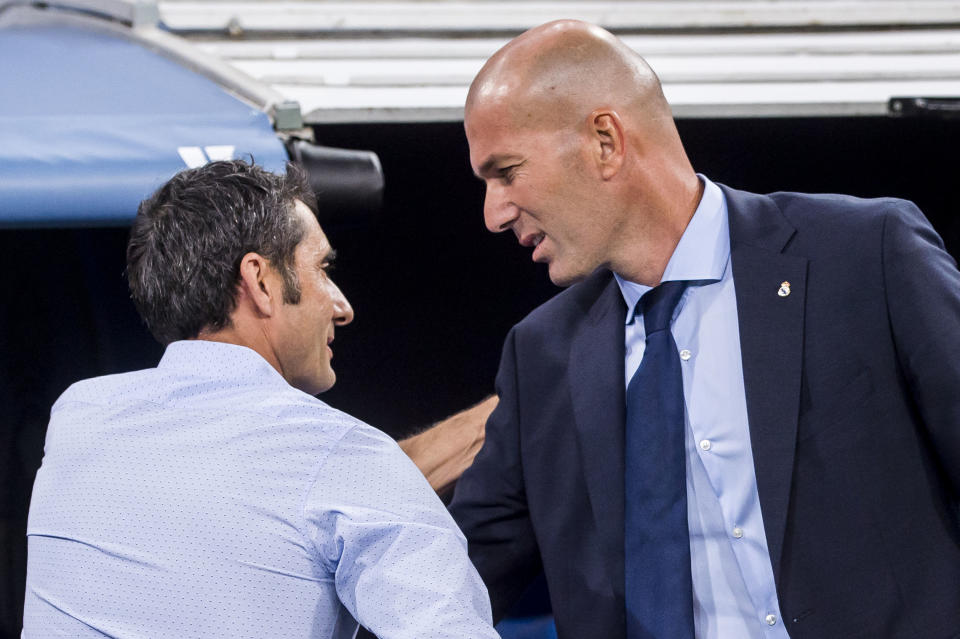Postponing El Clasico due to political unrest in Catalonia betrays the essence of this incredible rivalry

There was supposed to be an El Clasico on Saturday. There will not be an El Clasico on Saturday.
The first meeting of the season between FC Barcelona and Real Madrid has been postponed until December, likely taking place on the 18th – although that might well be the subject of a lawsuit between the Spanish federation and La Liga in the latest battle in their never-ending power struggle.
The root cause of all this is the political unrest in Catalonia, which some believe is an outright constitutional crisis. You may recall that in 2017, the leaders of the separatist movement in the autonomous region held an unsanctioned referendum. The vote was summarily and heavy-handedly shut down by government forces – while Barca’s home game against Las Palmas that day was not postponed but played in front of an empty stadium for security reasons – and those responsible were prosecuted. The nine leaders were sentenced to long prison terms of 9 to 13 years each for sedition last week, and ever since, there have been demonstrations against the sentences on the streets of Barcelona and elsewhere in Spain, which have occasionally turned violent.
The air has been filled with smoke from burning barricades and police helicopters, while police have set upon protestors with foam, rubber bullets and batons. Those protesters, meanwhile, have closed off streets downtown, stopped trains from running and grounded all air traffic at Barcelona’s airport. Strikes have been called and some demonstrations have turned into riots while the chaos has spread to other cities.
Barcelona’s football club, like 60 percent of Catalans, disagreed with the prison sentences and put out a statement to that effect. “Prison is not the solution,” it wrote.

“FC Barcelona, as one of the leading entities in Catalonia, and in accordance with its historical record for the defense of freedom of expression and the right to decide,” it announced, rather grandly, “today, after the condemnatory ruling issued by the Supreme Court in relation to the open process against the Catalan civic and political leaders, states that: In the same way that the preventive prison sentence didn't help to resolve the conflict, neither will the prison sentence given today, because prison is not the solution.
“The resolution of the conflict in Catalonia must come exclusively from political dialogue. Therefore, now more than ever, the club asks all political leaders to lead a process of dialogue and negotiation to resolve this conflict, which should also allow for the release of convicted civic and political leaders. FC Barcelona also expresses all its support and solidarity to the families of those who are deprived of their freedom.”
Real’s visit, scheduled for Saturday, would have been Barca’s first home game since the sentencing, because sometimes things just work out in the most implausible way possible. And Barca remained eager to keep the date. “We want to play the Clasico with our fans on the 26th,” manager Ernesto Valverde said, adding that he saw it as a chance to underscore a sense of normalcy. His Real counterpart Zinedine Zidane seemed less enthused but also had no objections.
The government, meanwhile, had no interest in postponing the game, claiming that it could safeguard the biannual mega-event. Yet the voluble Javier Tebas, the controversial La Liga president, immediately declared that the game should be moved, citing security issues, and first suggested flip-flopping the teams’ home fixtures, with the second originally scheduled for the Bernabeu in Madrid in March. But the Spanish federation claimed that wasn’t possible.
And so began a jostle over the game that was entirely avoidable, according to journalist Dermot Corrigan’s excellent reporting from Spain.

There was apparently a fear within the league, and perhaps the federation too, that the game would be hijacked as political stagecraft. Barca is the foremost institution in its wantaway region and while its fans, players and employees comprise a blend of separatist and loyalists, its ties to the independence movement are as old as the club itself. Banners declaring “Catalonia is not Spain” and “Independence” are a fixture. The club’s statutes even prescribe loyalty to Catalonia. And key figures like former player and manager Pep Guardiola and stars Xavi Hernandez and current vice-captain Gerard Pique are openly Catalanist.
Hence the fear from La Liga that its showpiece game, expensively sold to broadcasters in Asia and therefore scheduled earlier in the day than usual, would turn into something other than a marketing bonanza. This is the same instinct that has driven Tebas to try to move regular season games to Miami, never mind the precedent it would set in global soccer.
It should also be noted here that the league is based in Madrid, and that Tebas has participated in anti-independence rallies in Catalonia.
Essentially, the Clasico was moved because La Liga was worried that one of the most political games in the world, a century-old grudge match that has acted as a proxy war for political tensions between Madrid and Barcelona, would turn … political.
It is somehow both cynical and a misunderstanding of what makes the rivalry what it is. The reason temperatures reliably run hot in this game is exactly because of the subtext. Stripping it away for marketing gain is to betray the essence of one of the great rivalries in sports.
Leander Schaerlaeckens is a Yahoo Sports soccer columnist and a sports communication lecturer at Marist College. Follow him on Twitter @LeanderAlphabet.
More from Yahoo Sports:

